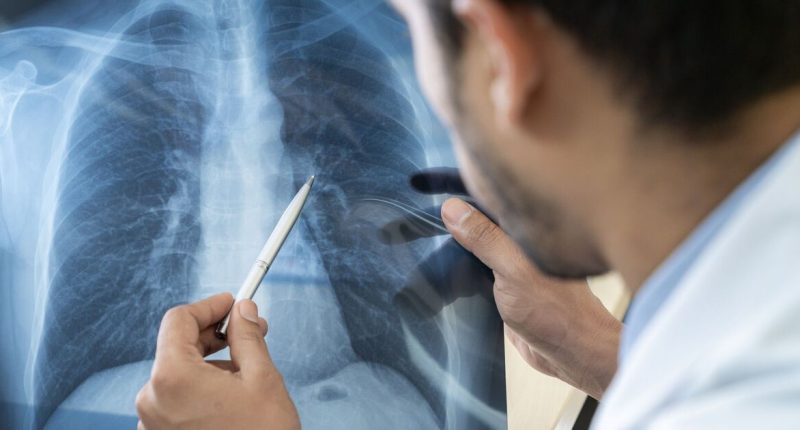Share this @internewscast.com
Breathing in microplastics may be wreaking havoc in our lungs, according to a study which found they disrupt the immune system. Research revealed that inhaled particles suppressed the action of white blood cells known as pulmonary macrophages. Described as “immune housekeepers”, the cells devour pathogens and help to clear away dead lung cells, which can cause chronic inflammation if left to accumulate.
For the study, researchers cultured macrophages and exposed them to different sizes and concentrations of microplastics. After 24 hours’ exposure, the cells showed a reduced ability to surround and absorb other bacteria.
Study leader Dr Adam Soloff, an associate professor of cardiothoracic surgery at the University of Pittsburgh, said: “When we first started to discuss these microplastic exposures, I was sure that the macrophages would just eat and digest them, and that would be the end of it.
“I was really surprised to see that not only did the macrophages struggle to break down the plastics in vitro, but macrophages in the lung retained these particles over time as well.”
Presenting their findings at the American Thoracic Society’s annual conference in San Francisco, experts said this could explain why microplastic exposure is linked to higher risk of cancer and other diseases.
Dr Soloff said: “For me, it’s a bit eye opening that although microplastics aren’t the most dangerous agent we may encounter, they are far from benign.
“Respiratory microplastics disseminate systemically after passing through the lung and negatively affect macrophage function.
“Overall, these may have detrimental effects on any and all organ systems and contribute to a number of diseases.”
The team now plans to examine the effects of microplastic exposure in lung tissues from patients.
Dr Soloff added: “Given the poor air quality in so many places around the world, you could imagine that developing a low-cost, low-side-effect therapeutic to restore pulmonary macrophage function may be an important tool to combat increasing rates of lung disease.”












